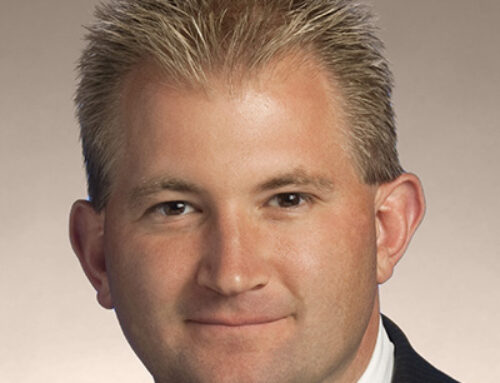The Commercial Appeal published a story yesterday that examined 22 shooting deaths of suspects by Memphis police since 2009.
It is a clear example of how access to public records can shed light on local government operations, providing citizens and community leaders support and information for better understanding and tackling a problem.
The sheer volume of people shot and killed by Memphis police over a period of five years might be startling, but the Commercial Appeal went farther with its analysis after poring through police records, including video from a home surveillance camera showing an officer shooting an unarmed suspect in the back as he fled.
From the story, “CA Investigation: MPD officers fatally shoot 24 in five years; all closed cases ruled justified“:
** MPD investigated 21 of 22 of those cases itself rather than calling in outside, independent investigators. The exception involved the shooting death of a 15-year-old.
** All those killed were males. About 75 percent were black males, their ages ranging from 15 to 66.
** Officers reported having a gun pointed at them in 10 cases or 40 percent.
** In three cases, or 13 percent, suspects had a knife at the time of the fatal shooting.
** One officer, Pierce Hayden, was involved in three separate fatal shootings during the five years.
** At least three police officers were injured during fatal incidents, one by friendly fire.
** Over a third of those killed were unarmed. In two other cases, officers said they saw a gun but none was recovered.
** At least six of those killed were mentally ill.
** Nearly 73 percent of the officers who discharged their weapons during fatal incidents were white (45 percent of the current force is white).
** Two black police officers were forced out of their jobs after killing suspects. Archie was the only officer fired for violating the department’s use of deadly force policy. The other officer, Terrance Shaw, resigned in lieu of termination for violating MPD’s personal conduct policies after the fatal, off-duty shooting of that 15-year-old. It was his second fatal shooting in five years.
** The Raines precinct had the most fatal police-involved shootings during that period — five — followed by Mt. Moriah and Old Allen with four each.
Access to police records
How did the Commercial Appeal get this information? Public records, mostly police public records “including internal investigative reports; interviews with officers and witnesses; photos and videos…” The newspaper also looked through “a smattering of wrongful death lawsuits.”
Editor Louis Graham noted that it took months to get access to the records.
But unlike some local law enforcement agencies who have tried to keep such records under wraps by claiming the cases were still open, Memphis did eventually release most of the records. It declined to release records into two additional deaths at the hands of police officers earlier this year, saying those cases were under investigation. Still, the fact that many records were released, albeit with some persistent pulling from the Commercial Appeal, is good news and should be applauded and duplicated.
Is Memphis moving in a better direction on public records access? (See recommendations in a recent Memphis report requested by Mayor A C Wharton.)
The tension around access to police records in Tennessee is real.
Advocates for more openness (including TCOG) say that citizens need access to police records for accountability and insight into how a very important government function is being carried out in their community — law enforcement. Plus, citizens should be able to know what crime is happening in their community – not just what police tell them – but what incidents actually get reported to police.
While law enforcement generally don’t argue, at least directly, against the idea of accountability, some say they need the right to hold back records they deem are important to a case still under investigation.
The Court of Appeals in a ruling on police records agreed with the latter point of view last year and said that if your local police or sheriff’s department claims information is relevant to an ongoing investigation, they should be able to keep that information confidential. The case is under appeal with the Tennessee Supreme Court.
That’s a somewhat understandable argument for some things like a confidential informant’s name. But the problem with such a broad, blanket authority by law enforcement to keep whatever they want confidential — no matter if it would hurt their ability to investigate a crime — is obvious: It can easily be abused to hide embarrassing or even damning information from the public, and there would be no way to know or challenge it. Literally, citizens could be kept in the dark with little ability by institutions such as media organizations or watchdog groups to prove that something might be awry.
For example, in Tennessee under the appellate ruling, if police don’t want certain records public, they can claim the case is still open – indefinitely. This is especially easy in cases in which no charges are brought. A frequent complaint by journalists trying to investigate “cold cases” or cases in which no charges were filed (and the community wonders why) is that law enforcement can say the case is still technically “open.” Even if they aren’t actively investigating it.
At this point, you are relying on the good will (and perhaps good sense) of the local police or sheriff’s department — or district attorney’s office — to reveal documents. Even documents as basic as a police incident report can be swept up and withheld, causing a complete vacuum of information about what is happening in a community.
One can see the eagerness to block access to records. After the appellate ruling last year, a few district attorney offices claimed they could withhold police records even after the case was over and someone had been found guilty — because the case might be appealed.
At what point does the community get to have accountability for their law enforcement? Knowing how long it takes for a case to wind through the courts – would that be years after a crime has occurred?
The Commercial Appeal, in its reporting, delved into a topic that has national resonance – the use of lethal force by police in the United States which is significantly higher than other developed countries. Citizens should have a right to ask questions and get access to documents that answer them.




